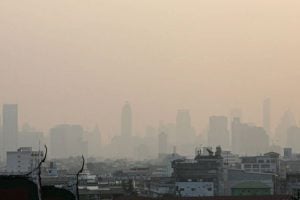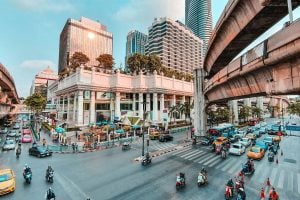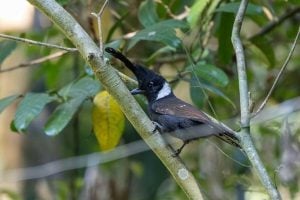Asia News Today | South Korea Committed To Re-opening Plans

China’s Foreign Minister Wang Yi is urging the Philippine government to steer clear of external “disturbances” to its China policy and work to prevent tension arising from their South China Sea dispute The issue of China’s claims over the island’s in the South China Sea has become one of the issues in the run-up to the Philippine presidential election next month. Meanwhile, China is accusing the US of breaking a promise by conducting military activity in the South China Sea. China’s Defence Ministry spokesman Wu Qian said the American side “have travelled thousands of miles to the South China Sea to seek provocation”.Speaking to the media last week, Wu said… “The US approach is seriously inconsistent with President Biden’s statement.” In the phone call between Biden and Xi Jinping on March 18, the US president said Washington did not want a“new cold war” with China.
—–
A dead fox in Japan has been detected with bird flu in the northern Hokkaido region. It’s Japan’s first case of avian influenza being detected in a mammal. The country’s environment minister says that the fox was believed to have eaten an infected wild bird. The Hokkaido Prefecture has raised its alert level on avian influenza since November and has been keeping a check on bird carcasses. Last week it was reported that five crows that previously tested positive for bird flu were found to have high levels of pathogens. The transmission between foxes and birds was previously considered unlikely, and officials will monitor the overall bird flu situation in the region. As of 2020, the World Health Organisation has reported a total of 861 confirmed human cases, resulting in the deaths of 455 people from Bird Flue since 2003.
—-
If Covid-19 infections rise in Singapore, the city-state says it won’t increase or strengthen current pandemic combatting measures. After two years of battling the spread of the virus, Singapore is on the alert for a possible rebound in infections, having lifted most of its most pandemic-era restrictions from last Friday. Axed policies include the national mask mandate, which required people to wear a mask in public areas, as well as dining and travel restrictions. Singapore is the first nation in Southeast Asia to adopt a full living-with-covid strategy, with neighbouring nations expected to follow suit during this year. Despite the general list of mask-wearing outside most Singaporeans have continued wearing their masks in public… at this time anyway. Other policies on the movement of unvaccinated Singaporeans, as well as remaining entry restrictions, will not be reconsidered until the nation’s healthcare condition is considered “completely stable”, according to Singaporean health authorities. With the relaxation of travel regulations for international travellers, more people will be able to enter Singapore — provided they are fully vaccinated for Covid-19.
——
Meanwhile, in South Korea, the nation is one step closer to getting back to some sort of normal as the country has dropped a major portion of its Ovid restrictions. As of April 1, South Korea no longer required vaccinated visitors to quarantine when they arrived from overseas. South Korean officials say they will continue to actively track high levels of Covid, noting that the US Centres for Disease Control’s travel health notice for South Korea currently remains at “Level 4:Likewise, the South Korean government is still detecting hundreds of thousands of new infections of the virus each day. But the government now feels comfortable plunging forward with plans to loosen travel restrictions, noting the low severity of the currently circulating strains of the coronavirus. Fully vaccinated travellers can now enter South Korea without quarantine procedures previously in place. Vaccinated visitors must register their vaccination status with the country’s Q-code website… a QR code that will be scanned while going through immigration when they arrive. South Korea currently requires a PCR test that must be taken within 48 hours of departure.
—–
An Indonesian teacher, who was found guilty of raping 13 female students at an Islamic boarding school, causing 8 of the victims to become pregnant, was sentenced to death yesterday. The 36 year old had been sentenced to life in prison back in February, in a case that drew national condemnation and attention to sexual abuse in the country’s religious schools. But prosecutors filed an appeal, requesting the death penalty to be imposed. The judge in the high court in Bandung accepted the appeal and upgraded the punishment to the death penalty. The accused was not in court for the announcement of the appeal. The man’s pattern of abuse at the school, also in Bandung, came to light when the family of a female student reported him to the police for raping and impregnating their teenage daughter in 2021. His crimes covered a period of 5 years leading up to his arrest late last year. Indonesia has held off conducting executions for several years and the last known executions by firing squad took place in 2016.
—–
When Japanese brewing consortium Kirin said enough was enough on its Burmese beer operations in March, the news made little difference to most Burmese who had long boycotted the beer it produced in cahoots with businesses owned by the military. For years, Myanmar Beer dominated bars and supermarket shelves, it’s Japanese backing a sign of the economic investment in Myanmar after the military relaxed its half-century-long iron grip on power in 2011. But after last year’s coup ousted Aung San Suu Kyi’s civilian government, many Burmese turned their backs on the popular brew, along with just about all goods made by companies linked to the country’s military, from soap to coffee, telecommunication and, yes, beer. Restaurants, which previously had signs for the Myanmar Beer brand on the front of their premises, have almost universally removed the signs, knowing it will kill their businesses. In early March, bombs were set off outside two Yangon bars, as well as a restaurant in another of the largest cities, Mandalay that was still selling the Military-linked beer.
—–
France has shown its support for Thailand’s fight against coronavirus by donating 3.2 million doses of the Pfizer mRNA vaccine to the Kingdom of Thailand. The donation will be well-received by Thai people as surveys show that Thais have more confidence in the effectiveness of the Pfizer vaccine than they do in Thai or Chinese-made vaccines. The French ambassador officially presented the donation to Thailand’s PM Prayut Chan-o-cha yesterday. The first delivery of over 400,000 doses took place on March 12 and the second delivery of 2.8 million doses at the end of March. A Suan Dusit poll in Thailand conducted last year revealed that 57% of people believed that Thai vaccines would help them to develop immunity… 66% had confidence in the AstraZeneca vaccine, but Pfizer won the poll with 75% of respondents having confidence in the Covid vaccine.
Latest Thailand News
Follow The Thaiger on Google News:


























